Phonics & Early Reading
Reading
Reading is given a high profile in our school, as we believe all other areas of the curriculum depend upon it.
In the Early Years, the children are taught phonics from the very start of the year and, as soon as they are ready, they are given reading books to take home that are fully decodable, using their phonic knowledge. This gives the children the satisfaction of success. Other reading schemes books, such as Oxford Reading Tree are also used to secure the reading of high frequency words. In class, children have books read to them every day and texts often form the basis of other learning activities, both indoors and outdoors.
Parents and carers are an essential partner in every child’s education: singing songs, saying rhymes and playing games such as ‘I-Spy,’ and shared activities such as these are essential if a child is to make progress. When your child starts school he / she will be given a reading book folder. This folder will come home regularly with a book for you to read to your child, a book to read together or a book for your child to read to you. Please find a quiet spot and read to or with your child each evening; this will give a tremendous boost to developing your child’s reading skills.
E-books can be accessed for free via the Oxford Owl website.
As your child gets older he or she could have have access to a range of reading materials which are available free of charge at the local library.
The children are also taught comprehension skills through daily guided reading sessions and using “Cracking Comprehension” and VIPERS strategies.
(Vocabulary, Inference, Prediction, Explain, Retrieve and Sequence)
Parents can contribute significantly to their children’s reading skills by talking about books at home. Reading to your child is just as important as hearing your child read!
We aim to foster a love of reading and take part in World Book Day each year.
Phonics
Children in Reception and Key Stage 1 are taught phonics every day. We use the 'Essential Letters and Sounds’ (ELS) programme to teach children the full range of individual sounds and how to blend them together. ‘ELS’ enables children to see the relationship between reading and spelling from an early stage – the teaching of one reinforces the understanding of the other.
Progression and Pace
The ELS Programme is divided into phases. However the boundaries between the phases are not fixed. Guided by reliable assessments of the children’s developing knowledge and skills, teachers judge the rate at which their children are able to progress through the phases and adapt the pace accordingly.
Phase 1
Phase One recognises the central importance of developing speaking and listening skills to pave the way to making a good start on reading and writing. It provides a broad and rich language experience for children in the early years’ foundation stage. Phase One activities are arranged under the following seven aspects:
- General sound discrimination – environmental sounds
- General sound discrimination – instrumental sounds
- General sound discrimination – body percussion
- Rhythm and rhyme
- Alliteration
- Voice sounds
- Oral blending and segmenting
Each aspect is divided into three strands:
- Tuning into sounds (auditory discrimination)
- Listening and remembering sounds (auditory memory and sequencing)
- Talking about sounds (developing vocabulary and language comprehension.
Phases 2-6
We use a multisensory approach to teaching Essential Letters and Sounds and the children love using their “robot arms”! Phases two to six are designed as a robust programme of high quality phonic work to be taught systematically. ELS lessons are taught daily for 20-30 minutes and the children are grouped across the two year groups. The children are encouraged to apply their developing phonic skills as opportunities arise across the curriculum throughout the day.
Progression:
- Nursery – Phase 1 and introduce phase 2 letters before children enter Reception class.
- Reception – Teach phases 2, 3 ,4 and introduce phase 5.
- Year 1 – Teach and consolidate phases 5.
- Year 2 – Teach phase 6.
Children should have completed all 6 phases of Essential Letters and Sounds by the end of Key Stage one. However children progress at different rates and the programme continues into Key Stage two until children are secure in all 6 phases.

